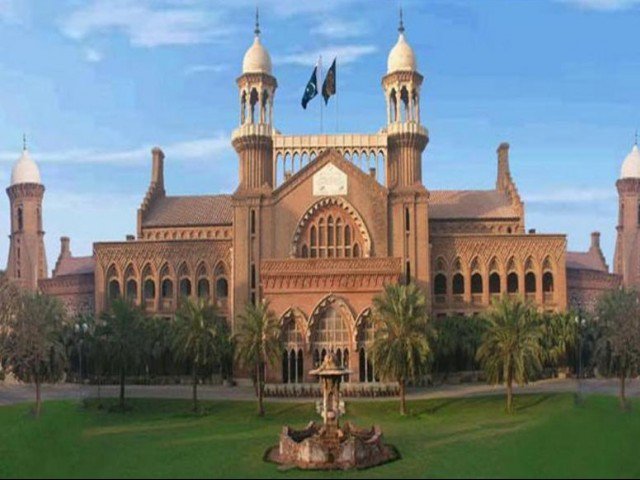
The Lahore High Court (LHC) on Wednesday declined several queries by a mother, including the consent of the father, regarding the marriage of an underage girl, which is a prerequisite under the Christian Marriage Act 1872 (CMA) and allowed the girl to go with her husband with whom she had married of her free will.
The petitioner Nasreen Bibi, the mother of the girl, had raised questions before the court contending that the respondent, who is the girl's husband, had forcibly married her 13-year-old daughter, adding that the marriage is now void as it was not performed in accordance with the mandatory procedure prescribed by the Christian Marriage Act, 1872.
She also claimed that her daughter was a minor, therefore, her father’s consent was not obtained, as required under section 19 of the aforesaid Act.
Read One more case of child marriage surfaces
The mother also alleged that her daughter had been kept in illegal custody, requesting the court for her recovery.
During detailed arguments, an additional advocate general opposed the petition contending it was a case of runaway marriage.
The petitioner had lodged a first information report (FIR) at Saddar Narowal Police Station under section 365-B PPC against the respondent and others regarding the minor girl’s abduction which the police recommended be cancelled after extensive investigation.
The respondent’s counsel questioned the authenticity of the girl’s birth certificate produced by the petitioner contending that she is sui juris. He implored the court that she contracted marriage with his client out of her free will and volition according to Christian rites.
He further denied the allegation of abduction contending the girl has also got her statement under section 164 Cr.P.C. recorded with the area magistrate to refute it. Lastly, he submitted to the court that there is no violation of the CMA which may make the marriage null and void.
Advocate Saad Rasool, amicus curiae, contended to the court that the CMA does not place an express restriction on the marriage of a minor if it is compliant with section 5 (persons by whom marriage is solemnized) and does not contravene section 88 (non-validation of marriages within prohibited degrees) of the CMA.
As regards the question of absence of consent required under section 19 of the CMA, the amicus curiae submitted that it would be a mere irregularity and would not render the marriage void.
Judgement
Justice Tariq Saleem Sheikh stated in his judgment that “before considering the issue of parental consent raised by the petitioner, it is necessary to examine the scheme of the CMA."
He went on to say, "This statute consolidated and amended the law relating to solemnizing the marriages of people professing Christianity. It consists of 88 sections."
"Part III, section 19, enjoins that the father, if alive, or his guardian, if he is dead, and the mother of the minor, in case there is no guardian, may give consent to the minor’s marriage. However, such consent is not required if the person authorized to give it does not reside in Pakistan," he shared in his judgement.
Read More ‘Early marriages deprive children of their childhood’
"In the present case, the parties are governed by Part VI of the CMA as they are native Christians. Section 60 lays down the conditions on which the marriages of that community may be certificated," he added.
The judge further mentioned that the minimum age for a native Christian man to enter into a marriage is 16 years and for a woman, 13 years in terms of section 60 of the CMA.
"The consent required under section 19 is within the age bracket of 16 to 18 and 13 to 18 years respectively," he said.
“There is no evidence to suggest that the marriage infringes the CMA’s consanguinity and affinity clause. Against this backdrop, this petition fails”, Justice Sheikh ordered.


1672385156-0/Andrew-Tate-(1)1672385156-0-165x106.webp)

















COMMENTS
Comments are moderated and generally will be posted if they are on-topic and not abusive.
For more information, please see our Comments FAQ